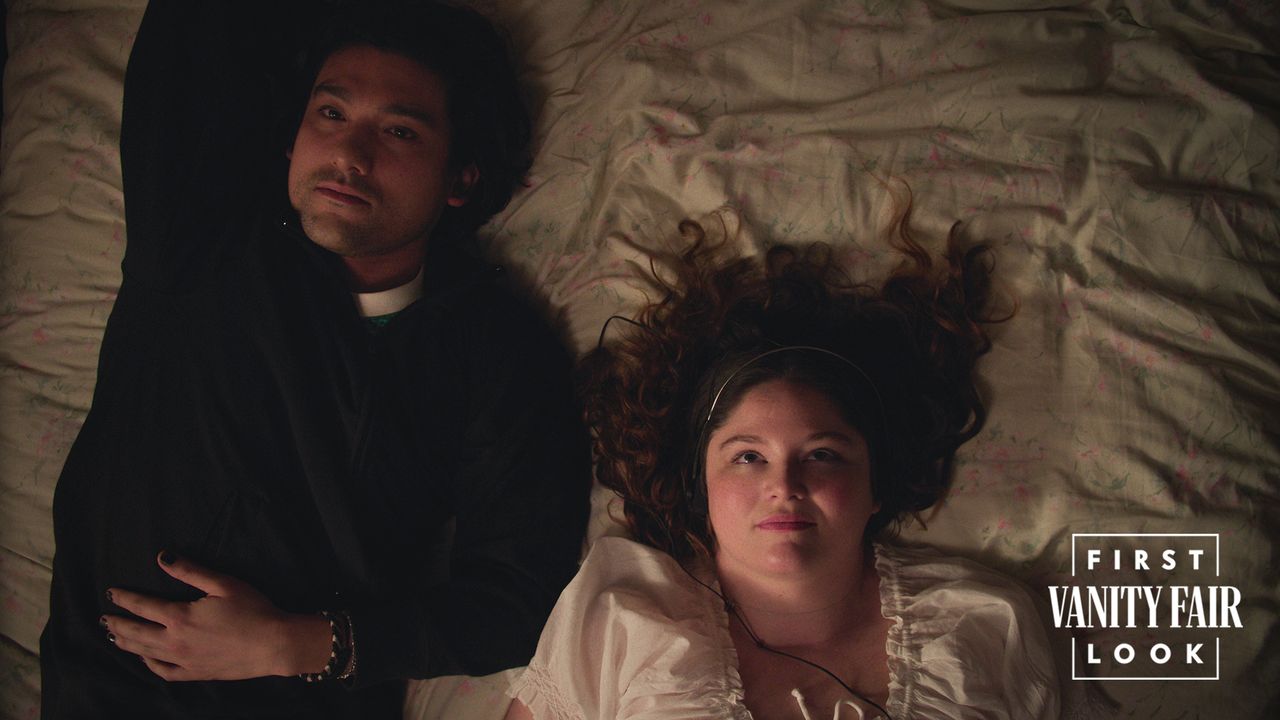Though the strokes may be broad, art did sometimes imitate life on the set of Too Much. Sharpe was taken slightly aback when he saw that his characte
Though the strokes may be broad, art did sometimes imitate life on the set of Too Much. Sharpe was taken slightly aback when he saw that his character was wearing a jacket similar to one Felber had in real life. “Felix is a grunge musician like Lu is, and is mixed-race British,” Sharpe continues. “But I definitely felt in the writing of it, he necessarily becomes his own character.”
Once, Stalter and Dunham showed up to set wearing the literal same shirt. (“It said ‘I love soup’ or whatever,” Dunham recalls.) People would call Stalter “Lena” when they saw her from behind, even though the two women don’t look particularly alike. “We just became so close,” Stalter says. “Lena makes me feel like a teenager, just laughing and gossiping and telling secrets. When you’re little, girls aren’t always told that you can be weird and wild—and I think we both have remained that way as adults.”
Dunham felt the same way. Though she didn’t intend to appear on the show at all, she eventually cast herself as Jessica’s sister. “It felt like we could be okay lying in each other’s lap for an afternoon,” she says. “There was just a spiritual thing, a melding that was happening.”
Before Jessica leaves for London, we get a lively glimpse of her life at home, with her sister, her mother (Rita Wilson), and her grandmother (Rhea Perlman) Dottie—named after Dunham’s own. “I brought in pictures of my grandmother, of her outfits, of her house,” Dunham says. “It was like the alternative version of reality, if my mom and grandma and I had just fully Grey Gardensed-in instead of expanding into the world—which could have happened, don’t get me wrong.”
Stalter felt empowered by Dunham as both a director and a friend. Too Much is the most dramatically intense role of her career: “I wanted to make Lena proud, and wanted to do a good job. But I also was really ready to take it on,” she says. Keeping with the Girls tradition, the show has several rigorously, authentically staged sex scenes. “It was the most supportive, warm-hearted set I’ve been on,” says Sharpe, himself a director of films including 2021’s The Electrical Life of Louis Wain. “Almost every sex scene, if not all of them, was storyboarded.”

COMMENTS